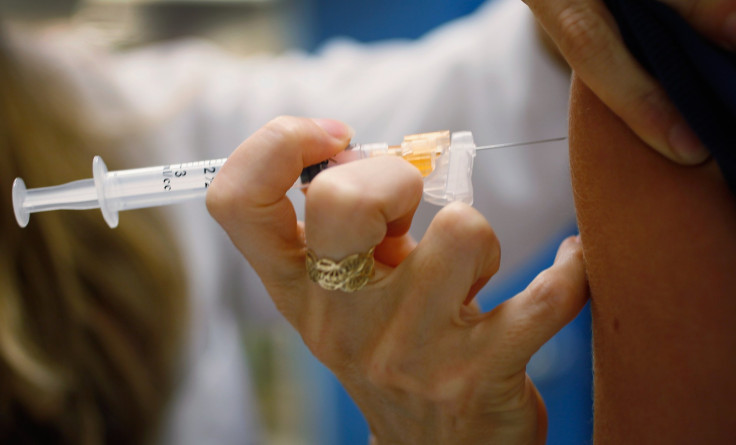Teen Girl Dies In Sleep From 'Useless' HPV Shot

A teenager from Vienna, Austria, reportedly died in her sleep Tuesday weeks after receiving the second shot of the Human Papillomavirus Infection (HPV) vaccination, a new documentary claims. The documentary, titled "Sacrificial Virgins," argues that the HPV vaccine may be "useless" and that the likelihood that the STI and cancer are correlated is slim.
Jasmin Soriat, 19, allegedly suffered neurological symptoms after intaking the second dosage. Soriat also suffered respiratory failure in the following three weeks, according to the film. The three-part documentary details the purported "hundreds of documented deaths" brought on by the HPV vaccine.
"The HPV vaccine is a treatment in widespread use but its efficacy in preventing cancer is medically unproven, while unintended, adverse reactions are blighting and even ending the lives of girls and young women across the world," IRF Films, a company helmed by Immunity Resource Foundation, wrote in the film's YouTube description. "Pharmaceutical manufacturers and many health authorities are refusing to acknowledge there is a problem and the medical community is continuing to offer the vaccine."
In addition to Soriat, the documentary also touched on Ruby Shallom's experience with the vaccine. The British teenager's family claimed that she was paralyzed after receiving the shot.
"The only limb that works now is my left arm… I still go out and see my friends but the pain and fatigue makes it hard," Shallom said in the film.
Gardasil, the first HPV vaccine, was approved by the Food & Drug Administration (FDA) in 2006. Cervarix and Gardasil 9 followed soon after. The shot is typically given during the adolescent years as a preventive method before a young woman engages in sexual activity, but it can be administered after the teenage years.
The vaccine is said to be a safe and effective way of preventing cervical cancer. Side effects, like with any other form of medication, are still common with the vaccine. Common side effects may include fever, headache, fatigue, nausea, muscle pain and joint pain. Pain, redness, or swelling in the location where the shot was administered is also common.
"No one has shown that the HPV vaccine can actually reduce the rate of cervical cancer," Dr. Christain Fiala, a specialist in obstetrics and gynecology, said in the documentary. "On the side effects side, it is clear that we have seen a huge number of serious [and] really terrible side effects, like young girls being paralyzed and actually coming down to death. We have seen death cases subsequent to [the] HPV vaccine."
Fiala added, "As long as we have no proof that cervical cancer is caused by HPV [and] as long as we only have an association, it is fundamentally useless to vaccinate against HPV...the cancer will occur whether there is HPV or not."
Thousands of teenage girls have claimed to feel ill after receiving an HPV vaccination, including Emily Ryalls, who spoke to the Independent in 2015.
"The symptoms grew increasingly worse after the second and third injections, and I went to A&E several times with severe chest and abdominal pains as well as difficulty breathing," she said. "One time I couldn’t move anything on one side of my body. I didn't know what was happening."
The National Vaccine Injury Compensation Program (VICP) reported awarding 49 victims of the vaccination in the United States approximately $5.8 million in 2013, according to documents obtained by Judicial Watch.
"This new information from the government shows that the serious safety concerns about the use of Gardasil have been well-founded," Judicial Watch President Tom Fitton said in a press release. "Public health officials should stop pushing Gardasil on children."
© Copyright IBTimes 2024. All rights reserved.






















